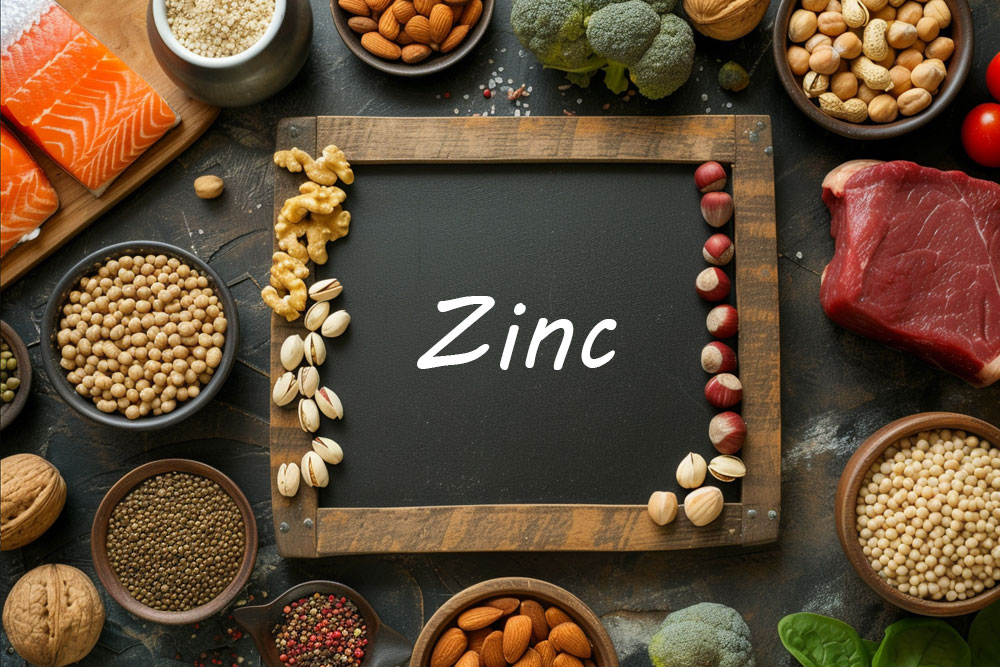The Secret Mineral Helping You Beat Winter Illnesses
It's involved in numerous processes within the human body and supports countless vital functions of the immune system. Its presence is crucial in helping the body overcome winter illnesses, and having adequate levels can prevent respiratory infections. Meet zinc, the secret mineral not everyone knows about, but definitely worth consuming.

We all know that during winter, it's a good idea to consume vitamin C by eating citrus fruits, certain foods, or taking a supplement. Some of us even take supplements like vitamin D or B regularly. But have you ever heard about zinc (ZINC)? What's its role, why is it so important in winter, and how can we increase our intake? Here are 5 essential facts you should know:
1. A Closer Look at Zinc
Zinc is essential for the proper functioning of the immune system. It is involved in antibody production, the immune response to infections, and recovery from them. Studies have shown that people with low zinc levels are at increased risk for infections, including upper respiratory infections, urinary tract infections, gastrointestinal infections, and various viral infections.

2. What Research Says
Clinical studies have shown that taking zinc supplements can help prevent winter illnesses or significantly ease them. A meta-analysis study published in 2021 in the journal BMJ Open examined the effectiveness of taking zinc supplements to prevent winter illnesses. The study included 17 clinical trials with over 2000 participants and found that zinc supplements might reduce the risk of colds by 50%, influenza by 30%, and sore throats by 50%. Additionally, the study found that taking zinc could shorten the illness duration by an average of 1.6 days.

3. How Does Zinc Work?
Zinc works in several ways to help fight winter illnesses. It boosts the immune system by encouraging antibody production and helps immune cells fight infections. Also, zinc aids the immune system in repairing damaged tissues.

4. How to Get Your Zinc
Zinc can be found in a wide variety of foods: meat, chicken, fish, dairy products, legumes, nuts, seeds, and even mushrooms. Foods containing high amounts of zinc are mainly animal-based, with meat being the best source. Beef and lamb contain high levels of zinc. For example, 100 grams of beef ribs contain 4.8 mg of zinc, and 100 grams of lamb contain 4.5 mg of zinc. Sardines and salmon also contain high amounts of zinc: 100 grams of sardines contain 4.9 mg of zinc, and 100 grams of salmon contain 2.8 mg of zinc. Those who don't consume much meat will be pleased to know that nuts and seeds are a great source of zinc, with 100 grams of pumpkin seeds containing 9.4 mg of zinc and 100 grams of cashew nuts containing 6.6 mg of zinc.
It is important to note that zinc absorption in the body improves when consumed with vitamin C, so it is recommended to combine zinc-rich foods with vitamin C-rich foods like citrus fruits, tomatoes, kiwis, peppers, and more.
5. How Much Zinc Do You Need?
Adult women should consume 11 mg of zinc per day, and men should consume about 15 mg of zinc per day. During winter illnesses, zinc intake can be increased by taking a supplement (after consulting with a doctor). Moreover, people at a higher risk of zinc deficiency, such as those with chronic illnesses or those taking certain medications, may need a regular zinc supplement.
This article is for informational purposes only and should not be considered a substitute for consulting a physician.

